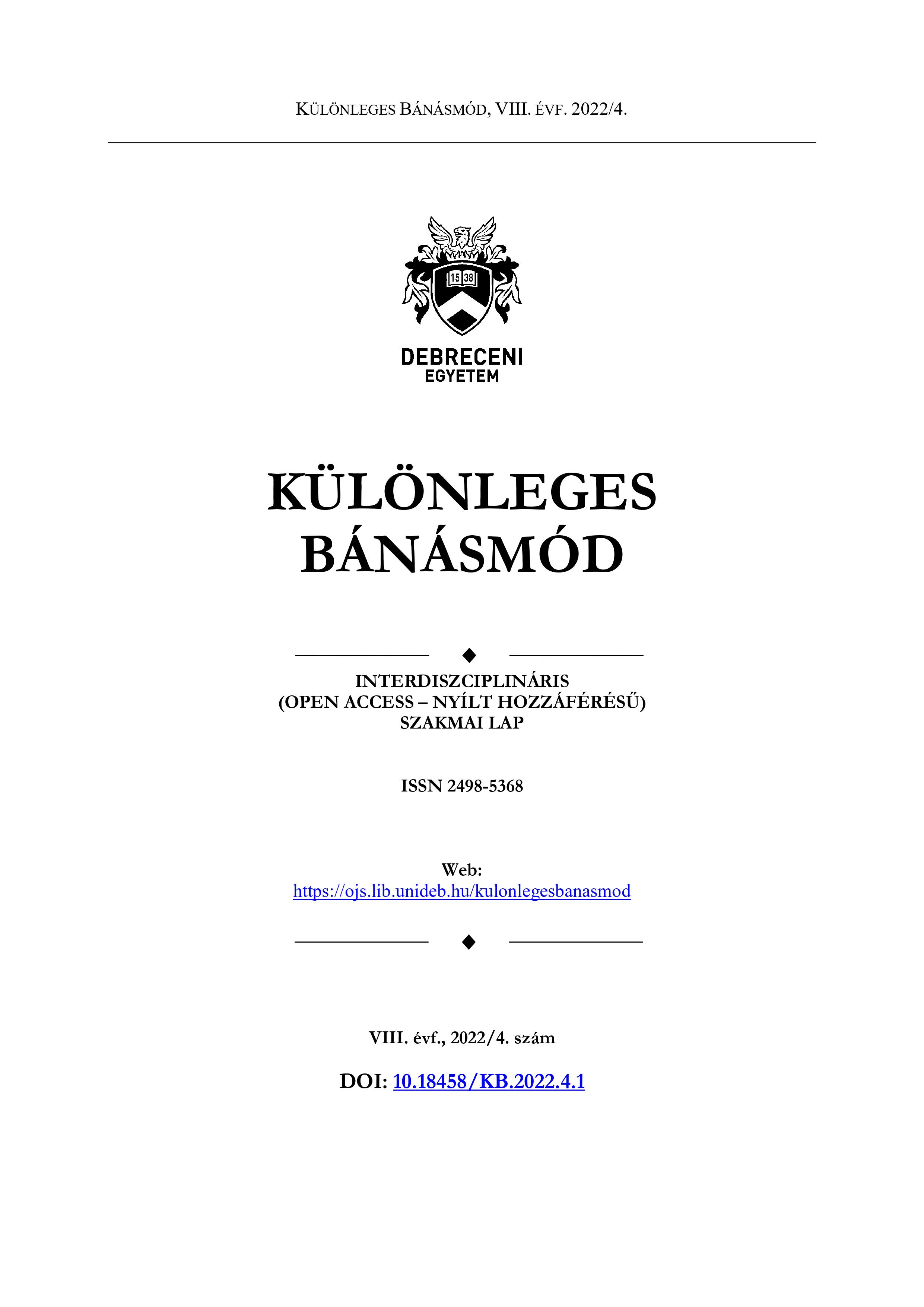AZ ASCEND PROJEKT: EGY NEMZETKÖZI VIZSGÁLAT MAGYARORSZÁGI FELMÉRÉSÉNEK EREDMÉNYEI
Szerző
Megtekintés
Kulcsszavak
Licenc
Copyright (c) 2022 Dr. Oravecz Adrienn

This work is licensed under a Creative Commons Attribution-NonCommercial-NoDerivatives 4.0 International License.
Hogyan hivatkozzuk
Absztrakt
Tapasztalataink alapján alacsony a fogyatékossággal élő fiatalok aktív társadalmi részvétele. Nehéz bevonni az érintetteket az érdekvédelmi munkába nemzeti és európai szinten egyaránt. Ennek egyik oka, hogy sokszor a fogyatékossággal élő fiatalok nem észlelik az őket érő diszkriminációt, másrészt vélhető, hogy nincsenek kellőképpen tudatában az őket védő anti-diszkriminációs rendszerekkel, rendelkezésekkel. Sok esetben nagyon szkeptikusak az anti-diszkriminációs rendszerek hatékonyságát illetően. A nemzetközi kutatás elsődleges célja, az érintettek erre vonatkozó ismereteinek feltérképezése és tudásuk bővítése a témával kapcsolatban. További célként fogalmazódott meg, hogy a kutatás segítségével nőveljük a kutatásba bevont személyek bizalmát a Magyarországon működő anti-diszkriminációs rendelkezésekkel kapcsolatban. Az egy éves időtartalmú Ascend projekt magyarországi részét a Mozgáskorlátozottak Egyesületeinek Országos Szövetsége koordinálta és valósította meg. Magyarországon a diszkrimináció és anti-diszkrimináció jelenségét főleg az oktatásban vizsgáltuk. A kutatásban kvalitatív módszereket, fókuszcsoportos kikérdezést és fogalmi térképet alkalmaztunk.


 https://doi.org/10.18458/KB.2022.4.43
https://doi.org/10.18458/KB.2022.4.43